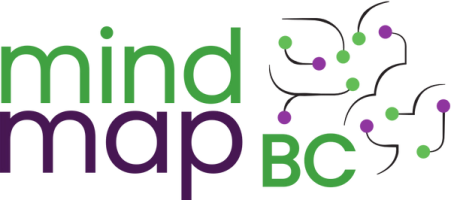Open Door Community Counselling
Summary
Individual counselling
Sliding Scale Available
LGBQ+ Affirming
Trans Affirming
 Wheelchair Accessible
Wheelchair AccessibleYouth
Seniors
Online resource
Remote services
Open Door Community Counselling is a Community Counselling Clinic in Vancouver. We charge $50 per session to all our clients, and do not require you to disclose your income or tax information to access this lower fee. Sessions can be in person at our accessible West Broadway location or online via secure platform. Counselling is offered by second year Masters of Counselling Psychology intern therapists who are supervised by a master therapist with over a decade of experience. While more of us are interested in and looking for counselling to bring more understanding and ease into our lives, therapy continues to be too expensive for many people. The average hourly fee for counsellors in private practice is about $120. For many people that is simply too much. We believe that mental health care should not just be reserved for people with the financial means to access high-fee assistance, and we believe counselling should be available when you need it most.
We know we aren’t solving the whole problem, but we do see ourselves as a part of the solution. Regardless of who you are or where you come from, we see you as a whole person with deep strengths and many resources. We’ll work in collaboration with you to figure out new ways of seeing, being and acting in the world. Our work is drawn from multicultural, feminist, queer-positive, anti-oppression, social justice-based approaches.
Want to learn more about this service’s work with Two-Spirit, trans, LGBQ+ people?
We invite all service providers listed on MindMapBC to answer the following questions. These questions were developed in collaboration with community members, researchers, and mental health and other service providers. They're intended to help us understand what a service provider or organization is doing to affirm and support sexual and gender diverse service users.
See below for responses for this listing.
Want to learn more about our screening questions and filters?
Do you collect and use preferred names (rather than legal names) for all communications?
—Yes
Our intake forms allow clients to write in any name they wish. We do not ask for any legal identification that might be different from their preferred name.
Are the forms used in your practice inclusive of various sexual orientations and gender identities (e.g., opportunities to fill in pronouns, etc.)?
—Yes
Yes. Clients are given several options from which to choose their gender, as well as the opportunity to choose pronouns. Clients also have the option to choose not to indicate their gender or pronouns on our forms.
Are you and your colleagues aware of what specific barriers may exist for trans individuals accessing your services?
—Yes, to some extent
We are in the process of learning and unlearning some of our biases, but we are aware that trans individuals face several barriers when accessing services including: low/no income, physical disability, barriers related to gendered bathrooms at our physical office. Experience with medial and mental health workers that were exploitative, unskilled and damaging to their ability to trust the practitioners skill.
Do you offer Indigenous 2S/LGBTQ+ specific resources, for example Indigenous Elders or Knowledge Keepers?
—No
We are a general counselling clinic, and unfortunately do not offer these services.
Are you and your colleagues comfortable asking relevant questions about gender identity and sexual orientation?
—Yes
Yes. As newly trained counsellors, our therapists have all taken courses in gender identity and diversity within the past year. Issues of gender identity and sexual orientation are common in the field.
Are you and your colleagues aware of what specific barriers may exist for LGBQ individuals accessing your services?
—Yes
Yes. This may include the fee being beyond their reach financially, the fact that there is no guarantee our counsellors have similar lived experience and the risk that a new practioner may not have the skill to navigate the lived experience of queer folk. We mitigate this with close supervision.
Do you and your colleagues ask clients about pronouns and use them appropriately?
—Yes
We ask clients to indicate their pronouns on our intake forms and use those pronouns in our work with clients. In cases where a clinician makes a mistake we apologize, correct ourselves and move on. We too are a work in progress.
Can you and your colleagues distinguish gender/identity dysphoria/distress from mental health conditions?
—Yes, to some extent
We are Masters Level therapists and not qualified to diagnose clients' mental health conditions. This would be the job of a psychiatrist or psychologist to distinguish. In our work with clients our goal is to understand their experience and the way in which they move in the world. If a client is in distress we work with them collaboratively to alleviate that distress.
Are you and your colleagues aware of what specific barriers may exist for Two-Spirit, queer, or trans Indigenous individuals accessing your services?
—Yes, to some extent
We continue to learn about these barriers, and our Clinical Director has been present at several trainings on this topic. There is much more to learn.
Do you and your colleagues have experience working with people who identify as living with a disability or chronic illness? Please tell us more about your experience and any training you have received.
—Yes, to some extent
Many of our students have worked with people who identify as living with a disability or chronic illness. All clinicians are learners and new to the field, and therefore have limited experience working in clinical settings with those who identify as disabled or living with a chronic illness. Our Clinical Director has experience working with this population and works closely with inters with clients from this community. Our intention is to ensure our practice is accessible to all. We are continuous learners.
Does your practice have gender-neutral washrooms?
—No
We are a hybrid practice in which clients have the option of meeting our clinicians either in person or virtually. Our physical office is, unfortunately in a multi-storey, older building and has not yet switched to gender-neutral washrooms.
Are there clear anti-discrimination policies that include gender identity, gender expression, and sexual orientation in your organization or practice?
—Yes
Yes: "We welcome adults of diverse age, culture, gender, ethnicity, sexual orientation, ability and relationship configuration."
Are all individuals involved in service provision actively engaged in decolonizing their practices and/or organization? If yes, please type below what actions you and/or your organization are taking.
—Yes, to some extent
We are in the process of learning and unlearning many practices that have seemed 'normal' in the past. All individuals in our practice are new to the field and have therefore been in classes dealing with issues of diversity and inclusion in the mental health profession. There is always room for growth.
Are all individuals involved in service provision actively engaged in anti-racist practices, policies, and systems in their care model?
—Yes, to some extent
We are in the process of learning and unlearning many practices that have seemed 'normal' in the past. All individuals in our practice are new to the field and have therefore been in classes dealing with issues of diversity and inclusion in the mental health profession. There is always room for growth.
Address
1418 - 750 West Broadway
Vancouver, BC
V5Z 1H1
Last updated: August 26, 2022
Request changes —

